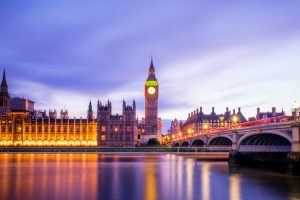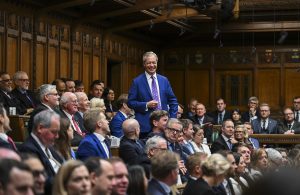On 21 March, the Government announced that Derby has been chosen to host the Headquarters of Great British Railways (GBR),[1] a new public body that will oversee the rail network in the UK.[2] This followed a competition, launched in February 2022, to find the new home of GBR.[3] In July 2022, the Government unveiled its shortlist for the location: Birmingham, Crewe, Derby, Doncaster, Newcastle and York.[4]
Why Derby?
The Government’s stated process for deciding on the location of GBR’s headquarters was based on six criteria: alignment to Levelling Up principles, connected and easy to get to, opportunities for GBR, value for money, railway heritage and links to the network and public support.[5] Derby scored highest on these criteria, also winning a public vote on the location, to meet the criterion of public support. However, the full decision-making process and the Government’s rationale was not made public.[6]
The choice of Derby could be seen as an indication of Conservative hopes for the next election. Placing the headquarters in Derby, rather than at the heart of the Red Wall, in Doncaster or Newcastle, may be a defensive reaction to poor poll figures for the Conservatives.[7] This may be a small indication that the Conservative Government will pursue policies in the coming months that benefit its core constituencies in the South, Midlands and rural areas in the North, rather than try to threaten Labour-held target seats in the North or major cities.
Future of Great British Railways
GBR’s transition team is now working with local leaders to identify an appropriate site within the city.[8]
Great British Railways’ Transition Team has begun work to set up the body. However, the Transport Bill, which would give GBR the statutory basis it needs to function, was delayed by Liz Truss’s Government, a decision which has not yet been reversed by Rishi Sunak.[9] While the Department for Transport (DfT) and GBR are continuing to work on issues which do not require legislation, such as a long-term strategy for the rail industry, it is now highly unlikely that GBR will be up and running in 2023 and fully operational before the next General Election, which is expected in 2024.
Therefore, GBR is vulnerable to a change in policy by a Labour Government. Taking rail services back into public ownership as contracts expire is Labour Party policy[10], and this would necessitate changes to the Conservatives’ plans for GBR.
Criticism of the Process
The Government’s enthusiasm for competitions of this sort has caused some annoyance on the part of local authorities, with local leaders complaining that such a system meant they put in work that yielded no results. Various leaders, including South Yorkshire Mayor Oliver Coppard,[11] noted the amount of work that went into their unsuccessful bids. A similar dynamic played out in the allocation of funding from various Government pots, including the Levelling Up Fund.[12] This system, of competition between local authorities, risks alienating local leaders and leading to frustration with Government policy. A further problem is that while local leaders and voters in Derby may be pleased by this decision, people in the other five towns and cities will be disappointed.
[1] Department for Transport, Derby named as home of Great British Railways HQ, 21 March 2023, link
[2] Department for Transport, Great British Railways: The Williams-Shapps Plan for Rail, 20 May 2021, link
[3] Department for Transport, Public competition launched to find new home for Britain’s railways, 5 February 2022, link
[4] Department for Transport, Official shortlist announced to choose home of Great British Railways, 5 July 2022, link
[5] Department for Transport, Derby named as home of Great British Railways HQ, 21 March 2023, link
[6] Ibid
[7] Politico, Poll of Polls United Kingdom, link
[8] Department for Transport, Derby named as home of Great British Railways HQ, 21 March 2023, link
[9] Independent, Great British Railways plan ‘delayed’ as Liz Truss pulls transport bill, 19 October 2022, link
[10] Labour, Louise Haigh Conference Speech, 26 September 2022, link
[11] Twitter, Oliver Coppard Tweet, 21 March 2023, link
[12] Institute for Government, The Levelling Up Fund will not deliver on the government’s flagship agenda, 19 January 2023, link



